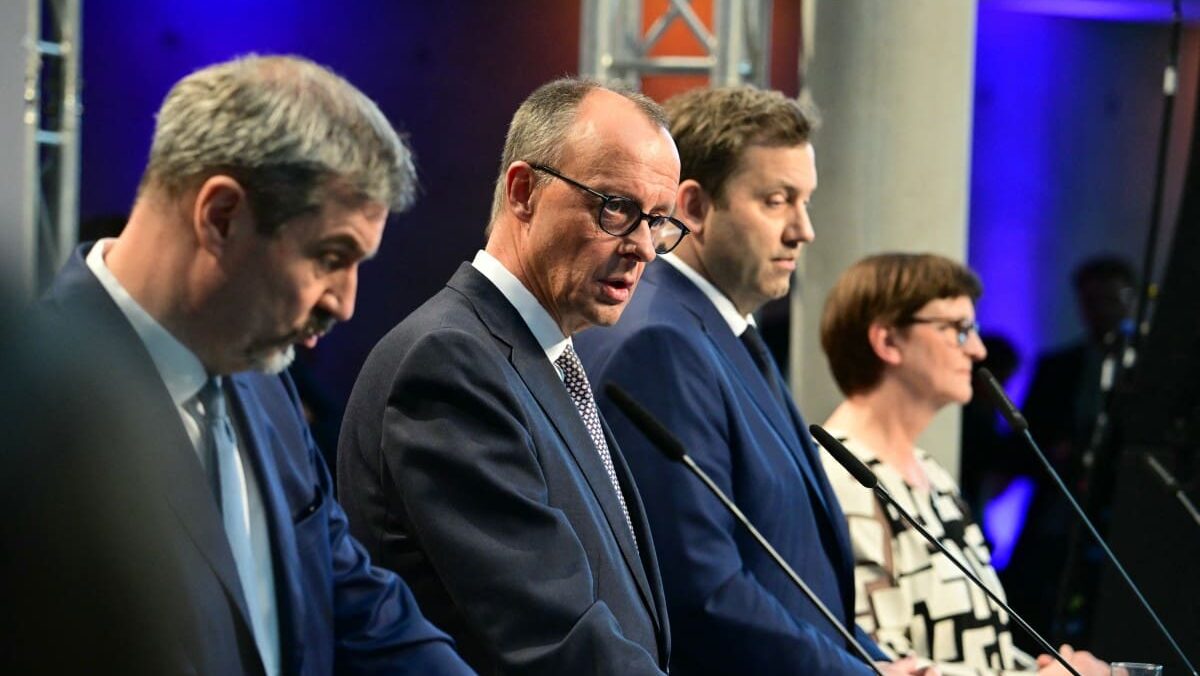
Tobias Schwarz / AFP
Germany’s next chancellor, Friedrich Merz promised to “move” the country “forward again,” as he presented his incoming coalition government’s programme on Wednesday, April 9th—but a closer look at his plans suggest that little will change.
The centre-right CDU—led by Merz—and its sister party, the Bavarian CSU, struck a deal with the Social Democrats (SPD) earlier in the day to renew their so-called ‘grand coalition’ (2005-09 and 2013-21) which was instrumental in igniting Germany’s economic and industrial downfall, as well as paving the way for the country to welcome millions of illegal migrants.
During the party leaders’ press conference, Merz pledged to make Germany “stable, safer, and economically stronger again,” and vowed to “largely end irregular migration.”
The fact that Merz used the word “largely” suggests that his campaign promise to turn back illegal migrants and undocumented asylum seekers at Germany’s borders will not be followed through with concrete actions.
The CDU leader campaigned on a tough anti-immigration platform but has since backtracked on almost all of his promises. His party has lost a lot of its support since the elections on February 23rd, as Merz has gradually caved in to the demands of the pro-migration SPD.
Instead of sticking to his guns and simply rejecting illegal migrants at the border, the government programme proposes to do so “in coordination with our European neighbours.” As both Austria and Poland have refused to take back migrants from Germany, the plan seems to be unaccomplishable.
Rather than imposing a “de facto entry ban” on migrants without valid entry documents, the government will only enforce an entry and residency ban only after a illegal migrant has been allowed into Germany, deporting them (in theory) at a later date. The fundamental right of asylum would remain untouched.
The new cabinet will also keep a bill designed by the outgoing left-wing government, under which migrants and asylum seekers are eligible for naturalisation after just five years of residency. The only minor change to be implemented will be that applicants who demonstrate “special integration achievements” will now not be allowed to gain German citizenship after only three years.
Merz’s government will at least continue to enforce temporary border checks, and refugees with limited protection status will not be allowed to bring family members to Germany for two years. The coalition also plans to expand the list of safe countries of origin.
The centrist-leftist government also wants to continue to crack down on free speech and enforce the EU’s censorship tool, the Digital Services Act. Critical voices, called ‘hate speech’ by the coalition, will be deleted from social media platforms, if the government has its way.
“Zero tolerance” will be applied to “enemies of democracy,” and the spread of “right-wing extremist thoughts” will be “systematically combated”—ie. attempts at silencing and possibly banning AfD, currently the most popular party in Germany, will continue. Politicians who have been convicted of incitement to hatred, such as the leader of the AfD’s Thuringia branch Björn Höcke, could be deprived of the right to stand for election.
In the incoming government, the CDU party will take control of the foreign office, the economy ministry, as well as the ministries for health, transport, digitalisation, and education. The SPD will take charge of finance, justice, labour and social affairs, defence, environment, and development aid and construction. The CSU is getting the interior ministry, research and technology, and agriculture.
